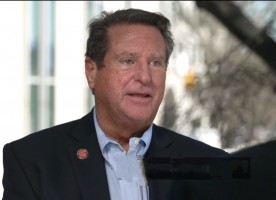Submitted by JC Bowman - To the outside world, our industrial model public education system has changed very little in the last fifty years. However, those who have worked within the system would challenge that view. Everyone can agree we must have an education system that serves all students, preserves democratic ideals and civic participation, and allows students to succeed in the future economy.
Educators have constantly battled against the false premises that our public schools are failing, that educators are the problem, and that outsiders (usually non-educators) should take control of running our schools. Too many policymakers, including state leaders, have simply bought into the jargon fostered by disruptive education that pushes that agenda. The 113th Tennessee General Assembly has work to do this legislative session.
What’s next in education for Tennessee? We must begin with the obvious. It matters who leads the Tennessee Department of Education. Will Governor Bill Lee re-appoint beleaguered Commissioner of Education Penny Schwinn in his second term? That question will reveal much about what the Lee agenda is moving forward. If he reappoints Commissioner Schwinn, then we will see more of the same policies. If he goes in a different direction, it sends a message that the state can now reset, reimagine, restart, refocus, and rebuild.
My organization has been both supportive and critical of various education initiatives in the last decade. We believe we do not need more disruption in education, as much as we need innovation. Our focus must remain on preparing students for life after high school, so students can move seamlessly into a college or career that allows them to live, work, and maintain a living wage as an adult.
Fewer Tennessee students are attending college despite opportunities through programs like Tennessee Promise. Business as usual will not work, and Colleges and Universities will need to evolve and innovate, with people becoming more responsive to their learning. The Brookings Institute pointed out a decade ago, that over “50% of STEM jobs do not require a bachelor’s degree, and almost 50% of students who receive four-year STEM degrees begin their learning at community colleges.” Tennesseans obsiviously agreed in a recent Fox 17 poll. Intangibles such as emotional intelligence, curiosity, creativity, adaptability, resilience, and critical thinking will always be highly valued in public education. Literacy, numeracy, and scientific knowledge will always be essential.
What legislation are we focusing on? First, we will continue our work of increasing the teacher pipeline. This means legislation that helps recruit both new educators and retains existing educators. For recruitment, we must increase funding for out-of-pocket expenses by teachers and assist with childcare stipends for educators with young children. We are also eager to provide mental health assistance and tuition assistance for prospective educators. We will also need to look at the use of licensure exams and other barriers that limit educators. The teaching profession is lacking enough educators state-wide, which is equaling problems locally at the college level and within our Rutherford County and City of Murfreesboro School Systems.
Second, on the teacher retention front, we are looking at how we can keep veteran teachers beyond thirty years. Representative Iris Rudder will file legislation to allow educators to draw salary and retirement benefits after thirty years in the system. This is like legislation that passed in Florida and Louisiana that will help to keep veteran teachers in the classroom longer. We will continue to seek additional benefits and salary increases to keep educators in the field. We also must continue to address student discipline and excessive teacher workload.
Third, the Tennessee General Assembly will need to adjust the Third-Grade Student Retention Law and make modifications. What that change looks like will depend on several issues. We need to revisit our standards. Simply put, we have too many. It has been a point of contention between educators and policymakers. Policymakers should listen to educators, not bureaucrats on this issue.
The state must provide the necessary funding and support for K-2 students before even discussing student retention. To determine interventions, we need some benchmark testing to make sure that we can observe that our K-2 students are on track preceding third grade. We need to take a hard look at school readiness. Data shows students who entered kindergarten at six or older scored about 10 percent higher on the third-grade English Language Arts test than their peers who started school at age five or under.
We need to move summer school back into kindergarten through third grade and expand tutoring. We give the teachers more control over the classrooms to identify kids who are struggling and give students more support to be successful. Waiting until third grade to retain students is too late. The data must be tracked more effectively and be available to policymakers and stakeholders to judge the quality and reliability of any interventions.
Finally, we will advocate for a more robust discussion of the transformative power of public education. Professional Educators of Tennessee believe we must put teachers in a position where they can teach, and students in a position where they can flourish. Our education system works best with parental support and involvement---including at the legislature. Education provides a foundation for life and is a pathway to the future. Like all Tennesseans, state policymakers must frequently ask, “What kind of state or community do we want to live in, work in, and raise our family in? What kind of schools do we need to make this happen?”
We expect a busy legislative session at the Tennessee General Assembly. We look forward to working with legislators, policymakers, and other stakeholders to move our state forward in K-12 education. Our future depends upon our success. Failure is not an option.
##
JC Bowman is the Executive Director of Professional Educators of Tennessee, a non-partisan teacher association headquartered in Nashville.













